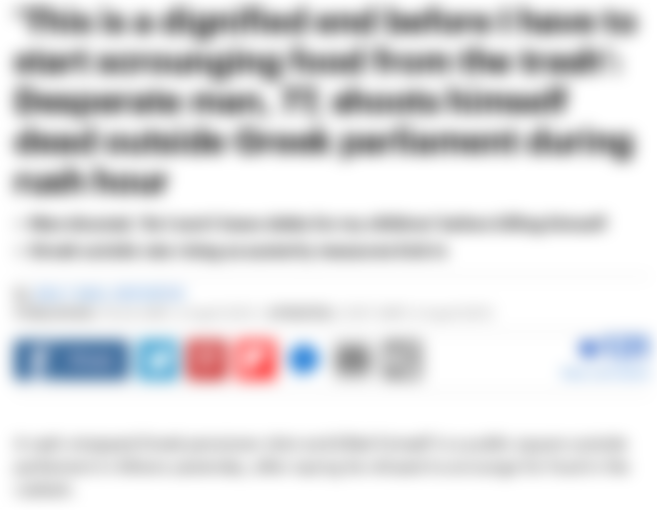The missing human right

No better day to write this than 1 January, 2020.
It took longer to write than I expected though, so published on the 2nd ;-)
Hello.
I'm here to tell you about your human right to transact freely, in the currencies of your choice.
I call it "freedom of transaction", and it is missing from places where we ought to find, like the Universal Declaration on Human Rights and the EU Charter of Fundamental Rights.
Freedom of transaction would give citizens the right to transact freely in the currency of their choice, including cryptocurrencies and tokens. Individual freedoms such as the below should be extended by freedom of transaction in EU Charter of Fundamental Rights and UNDHR.
- @btcfork, 12 October 2019
I believe that the lack of an explicit right in this instance is intentional. Either way, I think one can show that it has serious implications.
The first time I really saw the financial system attempt to take overt influence to curtail peoples' civic and political freedom world wide was with the Wikileaks financial embargo a.k.a. as the Banking Blockade.
Public donations to Wikileaks for the purposes of their journalistic activities were blocked by U.S. financial institutions, apparently to suppress evidence of war crimes committed by the U.S. administration.
A handful of US finance companies cannot be allowed to decide how the whole world votes with its pocket.
- Wikileaks, 28 June 2011
As we know, this saga isn't over yet, with the continued imprisonment of Julian Assange in the United Kingdom, under circumstances which have been described as torture by a U.N. rapporteur.
Reminding ourselves of our human rights
After the horrors of the second world war, the Universal Declaration on Human Rights was born as nations came together to document those rights which were more or less universally recognized as important and worthy of protection.
Today, the Universal Declaration of Human Rights is a document which has been translated into more than 500 languages.

In a press release issued in 1998, on the 50th anniversary of the declaration, the U.N. hailed it as a "a Magna Carta for all humanity", pointing to its impressive array of rights - including economic ones:
Although the Declaration, which comprises a broad range of rights, is not a legally binding document, it has inspired more than 60 human rights instruments which together constitute an international standard of human rights. These instruments include the International Covenant on Economic, Social and Cultural Rights and the International Covenant on Civil and Political Rights, both of which are legally binding treaties. Together with the Universal Declaration, they constitute the International Bill of Rights.
- "The Universal Declaration of Human Rights: A Magna Carta for all humanity", Press release, United Nations, 1998
Theory and Practice
In theory, the International Bill of Rights affords us many important rights.
In practice, things can look a bit different as we are subject to the whims of the states and multinational corporation which wield great power, especially when it comes to our economic existence.
"the enjoyment of civic and political freedoms and of economic, social and cultural rights are interconnected and interdependent"
- U.N. General Assembly, resolution 421 (V), sect. E
Below, I highlight some of those rights that relate to this "missing right" of freedom of transaction for which I'm trying to lobby here. I'll contrast these rights with some news events of recent years that show that why it is important that we fill that gap.
UNDHR, Article 3.
Everyone has the right to life, liberty and the security of person.
Our financial system is prone to global crises which detrimentally affect the lives of vast numbers of people.
"People are queuing for ATMs in Greece - but they can only get €60"

"financial crises are in essence banking crises"
- "A Strategy to Prevent Future Crises: Safely Shrink the Banking Sector", Adam S. Posen, Peterson Institute for International Economics, 2001
"The Times 03/Jan/2009 Chancellor on brink of second bailout for banks", the message inscribed in the Genesis block of Bitcoin (created Jan 2009), directly references the financial crisis going on at the time.
A 2017 study by the University of Maine titled "Suicides as a response to adverse market sentiment (1980-2016)" found that as individuals break down in the face of adversity resulting from foreclosures, mortgage delinquencies, evictions and other financial hardships associated with global financial crises like the Great Depression and the GFC in 2008 and following years,
"the rates of suicide and murder-suicide (where the perpetrator takes his or her own life shortly after a murder) can be predicted by shocks to the national economy".
We've seen the tragic headlines about individual tolls on human life:

Individual casualties quickly add up, as shown by the findings of researchers mentioned in this BBC article:
The economic crisis in Europe and North America led to more than 10,000 extra suicides, according to figures from UK researchers.
A great retrospective article on the 2008 global GFC is the Gautam Mukunda's "The Social and Political Costs of the Financial Crisis, 10 Years Later" (Harvard Business Review, 2018).
Let's repeat that point: Financial crises are banking crises.
In 2008 and the following years we saw central banks getting heavily involved in bailing out, bailing in, reducing interest rates to zero and below - all manner of measures.
We can justifiably ask: Has the financial system as a whole become better since those interventions, or worse?
Here, at the beginning of 2020, I think we can reasonable conclude that if any measures were taken to reduce the risk of another GFC, they have been at best ineffective. Certainly no-one seems reassured - on the contrary, most believe that "the big one" is closer than ever, and will make the previous financial crises look benign in comparison.
Bankers and central bankers might not all see it that way of course. Here is a quote by Mervyn King, former Governer of the Bank of England:
The major vulnerability of the banking system is, of course, its exposure to the rest of the economy. Most bank losses in the industrialised world over the past half-century reflected unexpected macro-economic shocks. And financial crises do not necessarily originate in the financial sector. In the drama and excitement of 2007–09 this key point has been forgotten. To adapt the words of President John F. Kennedy, banks might be forgiven for thinking “ask not what we are doing to the economy, but what is the economy doing to us”.
I don't know about you, but I got the impression that contained quite a bit of fingerpointing, almost absolving the banking system from all responsibility.
The quote hails from a set of papers and panel discussion remarks worth a read, published by the Bank of International Settlements (BIS), and titled
"Ten years after the Great Financial Crisis: what has changed?"
Indeed, what has. That document contains many more quotes worth digesting. Overall, it made the impression on me that central banks are well aware of their limitations, but alas, they are still chasing solutions of the same old form (regulation and bailouts) that seem to compound the problems.
And it appears that bankers tend to ignore the crises caused directly through financial system policy, such as the hugely unsuccessful demonetization drive in India:

After missing all its goals, the ghost of demonetization still haunts India's central bank today.
One seldom hears bankers criticizing various efforts to criminalize the use of cash in various ways, e.g. by imposing limits as has been done in several places, notably in Australia and some European countries.
"We know through recent research that once consumers make the link between ‘cashies’ and an increasing likelihood that the cash will not be declared as income by the business, they are less likely to accept the discount and more likely to pay by electronic means"
- ATO spokesperson, 2019
Some have called this "corporatocracy" as big financial firms are playing to their own interests in these games in which small businesses and individuals become pawns.
UNDHR, Article 12.
No one shall be subjected to arbitrary interference with his privacy, family, home or correspondence, nor to attacks upon his honour and reputation. Everyone has the right to the protection of the law against such interference or attacks.
For many years, a legal environment has been created in the U.S. whereby arbitrary interference with private assets became possible, and was routinely abused by agencies of the state.
"Feds: IRS seized millions from innocent people and businesses"
"IRS Seizes Over $100,000 From Innocent Small Business Owner, Despite Promise To End Raids"
"Family Loses $58,100 of Life Savings in US Customs Airport Seizure"
“They’re going after people who are really not criminals,” said David Smith, a former federal prosecutor who is now a forfeiture expert and lawyer in Virginia. “They’re middle-class citizens who have never had any trouble with the law.”
- "Law Lets I.R.S. Seize Accounts on Suspicion, No Crime Required"
I cite this as it is, for a change, the doing of a government agency instead of banks. It was of course not only the IRS that engaged in civil asset forfeitures.
As a further (and more global) example of arbitrary interference, we can look at the closures of bank accounts of those who are engaged in cryptocurrency related activities - examples numerous - are worth mentioning too.
"Barclays closed down my bank account after Bitcoin trade"
"FNB to shut down cryptocurrency platforms’ bank accounts"
"Did JPMorgan pressure FNB to close crypto accounts?"
"Funds Frozen, Account Closed: UK Banks Target Cryptocurrency Owners"
"Local banks shutting our accounts, say cryptocurrency firms" (Singapore)
"Indian Bank Closes Customer’s Account for Bitcoin Transaction"
One might say, this interference is anything but arbitrary. But is it not arbitrary if one permits a business to operate for years, only to sever relations as a result of pressures of third parties (other big banks, foreign governments or international bodies seeking to regulate finance)?
UNDHR, Article 17.
1. Everyone has the right to own property alone as well as in association with others.
2. No one shall be arbitrarily deprived of his property.
I guess most of us would consider our savings as our property. The European Debt Crisis showed that when it comes to our property, banks are not above helping themselves to peoples' money.
In Cyprus, through bail-ins, "at Laiki Bank alone, about 3.4 billion euros in deposits were wiped out."
There are many other instances where banks pass on the responsibility of their failures through losses to their clients.
"Man kills himself as bank failure wipes out savings"
"Now banks are trying to pin the blame for card fraud on you"
"Banks deny compensation when hackers steal customers' money"
I doubt we hear about most of the actual cases, because not all can get publicity. But I doubt a day goes by where people are not arbitrarily deprived of their financial assets.
UNDHR, Article 25
1. Everyone has the right to a standard of living adequate for the health and well-being of himself and of his family, including food, clothing, housing and medical care and necessary social services, and the right to security in the event of unemployment, sickness, disability, widowhood, old age or other lack of livelihood in circumstances beyond his control.
Access to a bank account has become a necessity to partake in most meaningful economic activity, yet
This is exacerbated by the "War on Cash" that has been waged for several years now, despite cash being a very popular means of payment in many countries.
Much could still be written here about the negative impacts of inflation, and its most destructive manifestation - hyperinflation, which we have seen in the news many times over the last few decades, from Argentina to Venezuela to South Sudan and Zimbabwe.
The common solution undertaken in many cases is "dollarization" - abandoning the failing local currency for a stable foreign fiat currency.
But this only makes countries choosing this solution dependent on another fiat currency - not an ideal situation for supposedly sovereign nations and their people.
ICESCR, PART I, Article 1.
1. All peoples have the right of self-determination. By virtue of that right they freely determine their political status and freely pursue their economic, social and cultural development.
2. All peoples may, for their own ends, freely dispose of their natural wealth and resources without prejudice to any obligations arising out of international economic co-operation, based upon the principle of mutual benefit, and international law. In no case may a people be deprived of its own means of subsistence.
If you find yourself with the "wrong" citizenship and at the receiving end of sanctions by the U.S. empire, you may find your economic development affected through no fault of your own, like Iranians resident in Malaysia recently discovered to their disadvantage:
“We regret to inform (you) that we are unable to continue the banking relationship”
“We are forced to do this because if we don’t, they will close our banks abroad. It’s a kind of bullying by very powerful people.”
- Mahathir Mohamad, Prime Minister of Malaysia
The example of international sanctions may seem a bit extreme, but it illustrates the dangers of centralization of power.
But it's not like the solutions aren't available, and so we do see a response by other countries to build systems which lessen their dependence on the financial tools of control of their adversaries - even starting to use central bank digital currencies as a means of asserting their sovereignty (Petro, DCEP, Sand Dollar etc).
Why do we need this new human right?
When it comes down to it, we the people are not much protected against economic exploitation at the hands of the financial system and the powerful who run it.
A decade ago, Bitcoin came along and offered a glimpse of different future.
A few people realized how cryptocurrency could empower people to participate economically without the sorts of interference and abuse of our liberties listed above.
Enshrining a human right to use the currencies of our choice would mean we could secure our future in new ways. We could save in sound currency that cannot be inflated away. We could engage in economic activity more privately, reducing risk to our data, identity and persons.
We could engage in electronic commerce with much less friction and with people all over the world, without censorship or ability for others to interfere.
We could discard many intermediate layers that currently add extra cost and risks to our transactions. And we could better shield ourselves against fraud, which is a big problem with traditional methods of payment (both paper and plastic).
Two roads
There are at least two possible futures ahead of us. I'll sketch the extremes which are in front of us at the start of this new decade.
Dystopia: a new feudalism
The behemoth of the legacy financial system absorbs the capabilities afforded by rampant surveillance, and an "iron dome" of control of all aspects of our lives descends on the planet, sooner or later eroding what remains of our rights and freedoms. We become new slaves of the controllers of the technological systems we have helped (or are forced to help) to build.
While it exists, such a system is a misery to humanity. We would probably not wish it on our children.
A better future?
In this future, we assert our human rights, starting with a fundamental right of self-determination and the pursuit of our free economic development.
Sooner or later this requires asserting our right to transact freely, a right which is strengthened immensely in practical terms by cryptocurrency.
Beginning with this economic foundation, and realizing our strength in numbers, we can begin to turn around, over time, the assault upon our other rights, and slowly reverse the damages wrought.
We can build a financial infrastructure which works for all of us instead of the select few.
We can begin to break down, through free flows of information and trade, the divisions that have been erected to keep us apart from each other and have kept us weak.
We can direct financial flows away from the existing corruption and destructive powers that squander them, and focus our resources, free of intermediation and with increased efficiency, on the realization of all our human rights.
The choice is ours.
"Without concerned citizen action to uphold [human rights] close to home, we shall look in vain for progress in the larger world."
- Eleanor Roosevelt
Some references used during the compilation of this article. You may find them useful. They're not particularly ordered, so you may need to use your browser's search function. Apologies.
[2] https://en.wikipedia.org/wiki/Universal_Declaration_of_Human_Rights
[3] https://en.wikipedia.org/wiki/International_Bill_of_Human_Rights
[4] https://en.wikipedia.org/wiki/International_Covenant_on_Economic%2c_Social_and_Cultural_Rights
[5] https://twitter.com/EU_Commission/status/1182978134167023622
[6] https://twitter.com/BTCTN/status/1176700174858690560
[7] https://twitter.com/btcfork/status/1176821088275374081
[8] https://twitter.com/btcfork/status/1183025859323727872
[9] https://web.archive.org/web/20150317062820/http://www.un.org:80/rights/50/carta.htm
[10] https://commons.wikimedia.org/wiki/File:Eleanor_Roosevelt_UDHR.jpg
[11] http://www.refworld.org/docid/3ae6b36c0.html
[13] https://www.thelocal.it/20151210/man-kills-self-after-losing-100000-in-italy-save-banks-plan
[14] https://www.bbc.com/news/world-europe-35062239
[15] https://nypost.com/2016/06/12/why-are-so-many-bankers-committing-suicide/
[17] Suicides as a response to adverse market sentiment (1980-2016) https://journals.plos.org/plosone/article?id=10.1371/journal.pone.0186913
[18] https://hbr.org/2018/09/the-social-and-political-costs-of-the-financial-crisis-10-years-later
[24] https://www.cbsnews.com/news/irs-seize-millions-innocent-people/
[25] https://venezuelanalysis.com/analysis/14642
[26] https://www.technologyreview.com/s/614905/china-digital-currency-dcep-test/
[28] https://object.cato.org/sites/cato.org/files/pubs/pdf/hanke-krus-hyperinflation-table-may-2013.pdf
[29] https://borgenproject.org/three-countries-in-hyperinflation/
[30] https://www.weforum.org/agenda/2019/08/inflation-deflation-venezuela-global/





https://www.mintme.com/token/6gg17480/invite